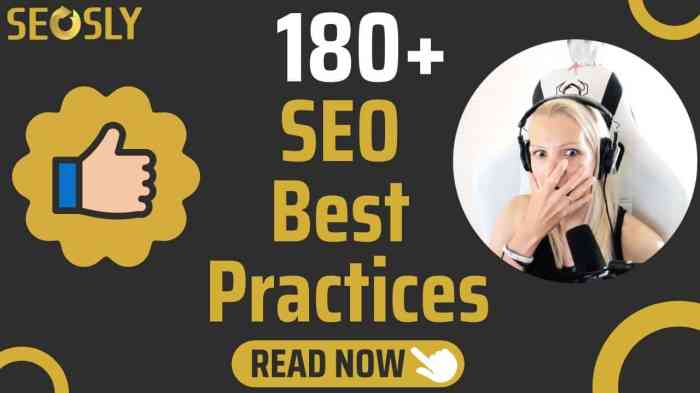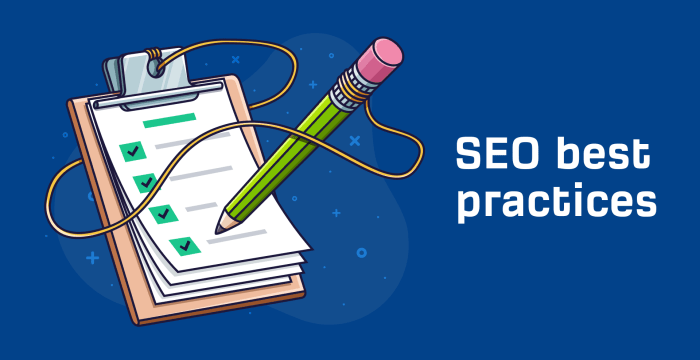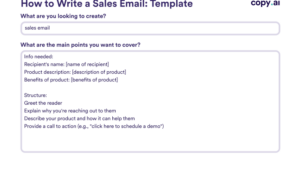SEO Best Practices – Best Practices takes center stage in the digital realm, offering a roadmap to enhance your website’s visibility and ranking. Dive into the world of optimized content and strategic techniques that drive organic traffic growth and success.
Importance of Best Practices

In today’s digital landscape, implementing best practices is crucial for enhancing website visibility and ranking on search engine result pages. By optimizing your website according to guidelines, you can improve your chances of reaching a larger audience and attracting organic traffic.
Following best practices can significantly impact the growth of organic traffic to your website. By focusing on relevant s, creating high-quality content, optimizing meta tags, and building backlinks from reputable sources, you can improve your website’s search engine ranking. This, in turn, can lead to increased visibility and more opportunities for users to discover your website through organic search results.
Several websites have benefited from implementing best practices effectively. For example, websites that consistently produce relevant and valuable content, optimize their website structure for search engines, and engage in ethical link-building strategies have seen significant improvements in their organic traffic and search engine rankings. By prioritizing best practices, these websites have been able to establish a strong online presence and attract a steady stream of organic traffic.
On-Page Best Practices
When it comes to on-page , there are key elements that play a crucial role in optimizing your website for search engines. These elements include title tags, meta descriptions, headings, content, images, and URLs. By focusing on these on-page best practices, you can improve your website’s visibility and ranking on search engine results pages.
Key On-Page Elements
- Title Tags: Title tags are HTML elements that specify the title of a webpage. It is important to include relevant s in your title tags to help search engines understand the content of your page.
- Meta Descriptions: Meta descriptions provide a brief summary of the content on a webpage. Writing compelling meta descriptions with relevant s can improve click-through rates from search engine results pages.
- Headings: Proper use of headings (H1, H2, H3, etc.) helps organize your content and make it more readable for both users and search engines. Include relevant s in your headings to signal the topic of each section.
Importance of Optimizing Content, Images, and URLs
- Optimizing Content: Creating high-quality, relevant, and valuable content is essential for on-page . By including relevant s naturally in your content, you can improve your chances of ranking higher in search results.
- Optimizing Images: Use descriptive filenames and alt text for images to help search engines understand the content of your images. Optimizing images can also improve your website’s overall user experience.
- Optimizing URLs: Create -friendly URLs that are short, descriptive, and include relevant s. Clear and concise URLs can make it easier for search engines to crawl and index your pages.
Websites with Strong On-Page Strategies
- Example 1: Website A optimizes its title tags, meta descriptions, and headings with relevant s, resulting in improved organic search traffic.
- Example 2: Website B regularly updates its content with valuable information, includes optimized images with descriptive alt text, and uses -friendly URLs, leading to higher search engine rankings.
Off-Page Best Practices: SEO Best Practices
Off-Page plays a crucial role in boosting your website’s visibility and authority on search engines. It involves strategies implemented outside of your website to improve its rankings.
Backlinks are like upvotes from other websites, signaling to search engines that your content is valuable and trustworthy. The more quality backlinks you have, the higher your website is likely to rank in search results.
The Significance of Backlinks
- Backlinks act as “votes” from other websites, boosting your site’s credibility.
- Quality backlinks from authoritative sites carry more weight in improving your search engine rankings.
- Diversifying your backlink profile with a mix of anchor texts and sources is key to a successful off-page strategy.
The Role of Social Media and Guest Blogging
- Social media platforms provide opportunities to share your content, increase brand visibility, and attract potential backlinks.
- Guest blogging on reputable sites allows you to reach new audiences, establish authority in your niche, and earn valuable backlinks.
- Engaging with influencers and industry leaders on social media can also lead to valuable backlink opportunities.
Tips for Building a Strong Off-Page Profile
- Create high-quality, shareable content that naturally attracts backlinks from other websites.
- Focus on building relationships with other website owners and influencers in your industry to earn quality backlinks.
- Regularly monitor your backlink profile using tools like Ahrefs or Moz to identify and disavow toxic backlinks that could harm your efforts.
Technical Best Practices

When it comes to Technical , there are several key aspects that website owners need to pay attention to in order to ensure their site is optimized for search engines. This includes factors such as website speed, mobile-friendliness, and site structure.
Website Speed
Having a fast-loading website is crucial for both user experience and search engine rankings. Slow loading times can lead to higher bounce rates and decreased visibility in search results. To improve website speed, consider optimizing images, minifying CSS and JavaScript files, and leveraging browser caching.
Mobile-Friendliness
With the increasing use of mobile devices, it’s essential for websites to be mobile-friendly. This means having a responsive design that adapts to different screen sizes and resolutions. Google’s mobile-first index also prioritizes mobile-friendly websites in search results, making it a critical factor for .
Site Structure
A well-organized site structure not only helps users navigate your website easily but also enables search engine crawlers to index your content effectively. Use clear and descriptive URLs, create a logical hierarchy of pages, and implement internal linking to establish a strong site structure.
Importance of XML Sitemaps, Robots.txt, and Canonical Tags, SEO Best Practices
XML sitemaps help search engines understand the structure of your website and index its pages more efficiently. Robots.txt file allows you to control which pages search engines can crawl and index. Canonical tags are used to avoid duplicate content issues by specifying the preferred version of a webpage.
Websites Excelling in Technical
Examples of websites that have excelled in technical implementation include HubSpot, Moz, and Neil Patel’s website. These sites have fast loading times, mobile-friendly designs, and well-structured content that make them stand out in search engine rankings.





